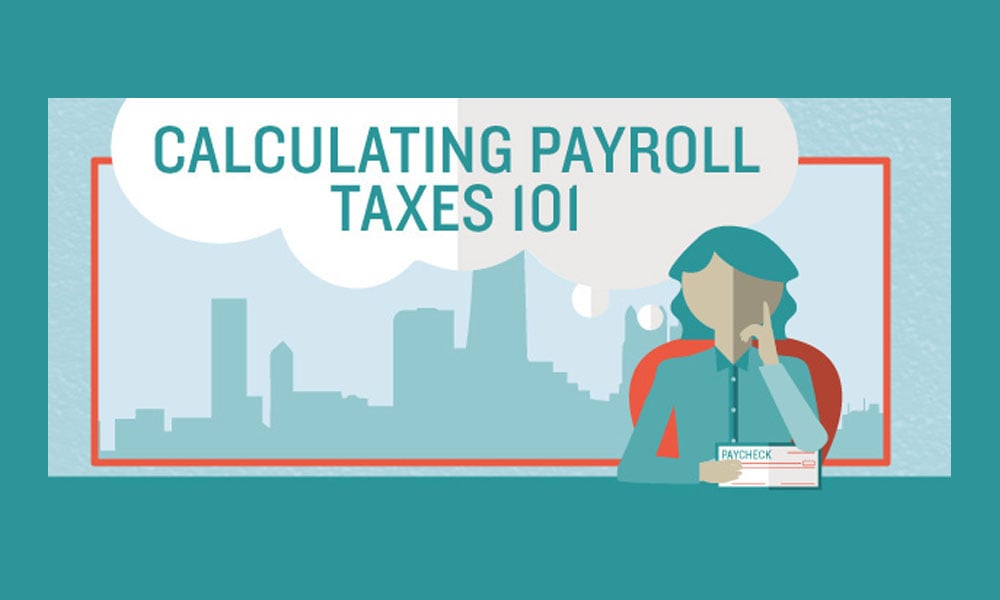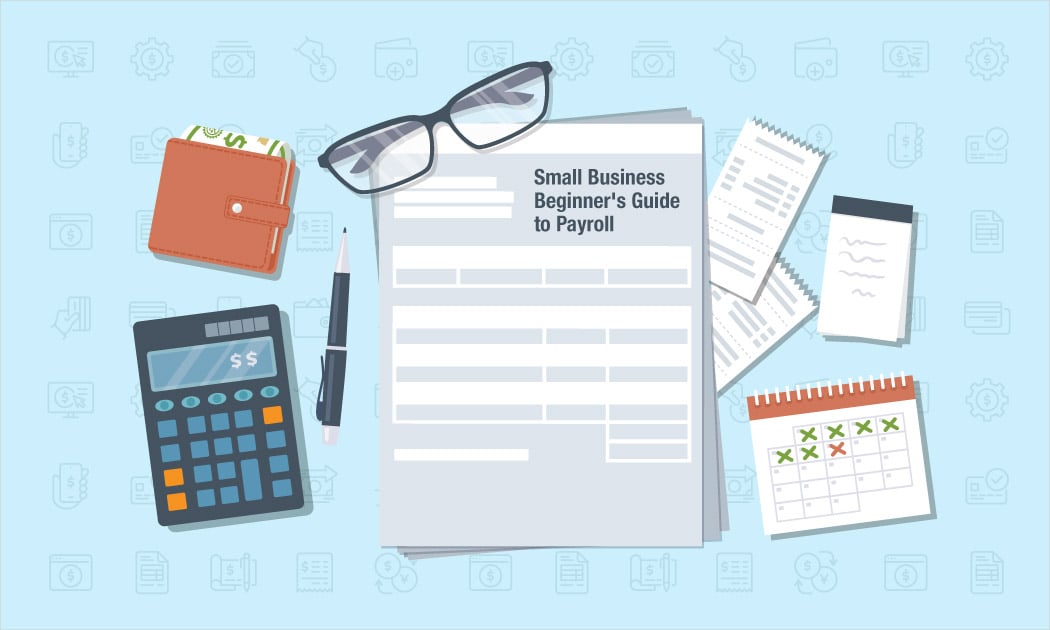The Payroll Blog
News, tips, and advice for small business owners
- Home
- Resources
- Payroll Blog
- What is FICA Tax?
What is FICA Tax?

The Federal Insurance Contribution Act, introduced in the 1930s, requires employers and employees to contribute to Medicare and Social Security programs. Commonly referred to as FICA, these taxes are automatically deducted from employee paychecks and matched by employers.
As a small business owner, you’re responsible for collecting, paying, and reporting certain federal and state employment taxes for your employees. This means you need to clearly understand how to calculate the FICA taxes accurately for your business and your employees.
What is FICA Withholding?
The Federal Insurance Contributions Act (FICA) is a federal law that requires employers to withhold three different types of employment taxes from their employee’s paychecks. These taxes include 12.4 percent of compensation in Social Security taxes and 2.9 percent of salary in Medicare taxes, totaling 15.3 percent of each paycheck. Additionally, employers must withhold 0.9 percent of wages in a Medicare surtax for certain high-paid employees.
The next question you may have is, who has to pay FICA? Both employees and employers share in paying FICA taxes. Employers must withhold the employees’ share of these taxes and pay the employer’s portion. These taxes are directed first to the Internal Revenue Service and then passed on to the Social Security Administration for retirement and disability payments. Further, the Medicare tax funds the federal government’s Medicare trust for medical expenses for individuals aged 65 and older or those who qualify for disability.
Is FICA Tax Mandatory?
FICA taxes are mandatory employment taxes that must be both withheld and paid on behalf of each employee. In other words, the employer matches the FICA tax share that the employees have withheld from their paychecks. Employers must pay FICA taxes semi-weekly or monthly. These taxes are reported on IRS Form 941.
If an employer pays or reports FICA taxes late, the IRS will charge the employer late fees, depending on the date the taxes were filed. For example, the employer could face a 2 percent late fee if the payroll taxes are filed 1-5 days late. This late fee jumps up to 10 percent for more than 16 days late filings.
If the employer fails to pay or report FICA taxes, the employer’s owner or officers can be held personally liable for the taxes. Making sure that your employment taxes are filed timely is essential.
How Is FICA Tax Calculated?
Let’s look more specifically at how each employee’s FICA tax is calculated on their paychecks.
Social Security
For the Social Security portion of FICA, both the employer and the employee pay 6.2 percent of gross compensation up to the Social Security wage base limit of $147,000, totaling 12.4 percent. Employers only withhold Social Security taxes up to this wage base limit, adjusted annually. Do not withhold Social Security taxes once the employee’s compensation exceeds this limit.
For example, suppose an employee makes $2,000 per payroll period. In that case, the employer withholds 6.2 percent on behalf of the employee, totaling $124, and then pays an additional 6.2 percent as the employer’s share, totaling $124. Thus, this employee will have a total of $248 paid into Social Security from his withholding and his employer’s matched payment.
Medicare
For the Medicare portion of FICA, both the employer and the employee pay 1.45 percent of the employee’s gross compensation, totaling 2.9 percent. Medicare does not have a wage base like Social Security.
For example, suppose an employee makes $2,000 per payroll period. In that case, the employer withholds 1.45 percent on behalf of the employee, totaling $29, and then pays an additional 1.45 percent as the employer’s share, totaling $29. Thus, this employee will have a total of $58 paid into the Medicare trust from his withholding and his employer’s matched payment.
Medicare for High-Earners
When calculating the paychecks for high-earners, the employer must withhold an additional .9 percent in Medicare tax for compensation over a specific threshold amount. For this tax, the employer does not make a matching payment.
From the employee’s perspective, this surcharge is due on compensation over threshold amounts, depending on the employee’s tax filing status. The thresholds are as follows:
- Those making over $250,000 in annual compensation, if married and filing taxes jointly
- Those making over $125,000 in annual compensation, if married and filing taxes separately
- Those making over $200,000 in annual compensation, for all other tax filers
However, it’s important to note that employers are required to begin withholding the Medicare surcharge tax once an employee’s compensation exceeds $200,000, regardless of whether the employee will owe the Medicare surcharge amount based upon the above thresholds.
For example, if a single employee makes $8,500 per payroll for twenty-four payrolls, that employee makes $204,000 in annual compensation. That means this employee would be subject to the additional Medicare tax since her compensation exceeds $200,000. Thus, her Medicare tax would be calculated as follows:
- First, both the employee and the employer must pay 1.45 percent of her compensation in “regular” Medicare taxes. Thus, the employee withholding of 1.45 percent would equal $123.25 per payroll period. Additionally, the employer would pay 1.45 percent, equaling $123.25 per payroll period. This employee’s total “regular” Medicare payment would equal $246.50.
- Second, because this employee qualifies as a high-earner, the employer will withhold an additional .9 percent on income above $200,000. However, the employer won’t withhold the Medicare surcharge tax until the employee’s wages exceed $200,000 for the year. Thus, this employee more than likely would have the additional .9 percent Medicare tax withheld in December.
How Does FICA Tax Impact Self-Employed Workers?
Self-employed workers must pay both the employee and the employer portion of the FICA tax. Thus, business owners and other self-employed individuals must pay the full 15.3 percent of FICA taxes. This is referred to as the self-employment tax. For self-employment tax, the amounts due are calculated the same way as FICA tax for employed workers, including the additional Medicare tax for high-income workers.
This sounds daunting at first. However, self-employed individuals can deduct half of their self-employment tax on their tax returns. This helps offset the FICA tax burden on business owners and other independent workers.
What’s the Employers' Responsibility for FICA Payroll Taxes?
After each payroll, employers are responsible for submitting FICA taxes—both the employees’ share and the employers’ share. Some employers may submit FICA taxes monthly as opposed to semi-weekly. Your total tax liability for the four quarters ending on June 30 of the previous year will determine if you file monthly or semi-weekly.
If you reported less than $50,000 in taxes in the previous four quarters, then you may file your FICA taxes monthly. Thus, for monthly filing, your FICA taxes are due to the IRS by the 15th of the month following payroll.
If you reported more than $50,000 in taxes in the previous four quarters, then you must make semiweekly deposits to the IRS. For example, if you pay your employees on a Wednesday, Thursday, or Friday, you must deposit your FICA taxes by the following Wednesday. If you pay your employees on Monday, Tuesday, or the weekend, you must file your taxes by the following Friday.
Additionally, you must file Form 941 quarterly. Your quarterly form will report your payroll amounts, and your tax withholding amounts every three months. For the first quarter, your Form 941 is due on April 30. For the second quarter, your Form 941 is due on July 31. For the third quarter, your Form 941 is due on October 31. And finally, for the fourth quarter, your Form 941 is due on January 31.
Need Help Calculating FICA Tax?
Calculating payroll taxes can be overwhelming. If you decide DIY payroll isn’t the right choice for you, it may be time to choose an online payroll provider to handle paychecks for your small business. Another option would be to work with an accountant or bookkeeper, so you have somebody on hand to help with day-to-day business tasks and provide extra assistance come tax season.
Related Blog Posts
View Our Plans and Pricing
Small Business Is Our Business.
This website contains articles posted for informational and educational value. SurePayroll is not responsible for information contained within any of these materials. Any opinions expressed within materials are not necessarily the opinion of, or supported by, SurePayroll. The information in these materials should not be considered legal or accounting advice, and it should not substitute for legal, accounting, and other professional advice where the facts and circumstances warrant. If you require legal or accounting advice or need other professional assistance, you should always consult your licensed attorney, accountant or other tax professional to discuss your particular facts, circumstances and business needs.



